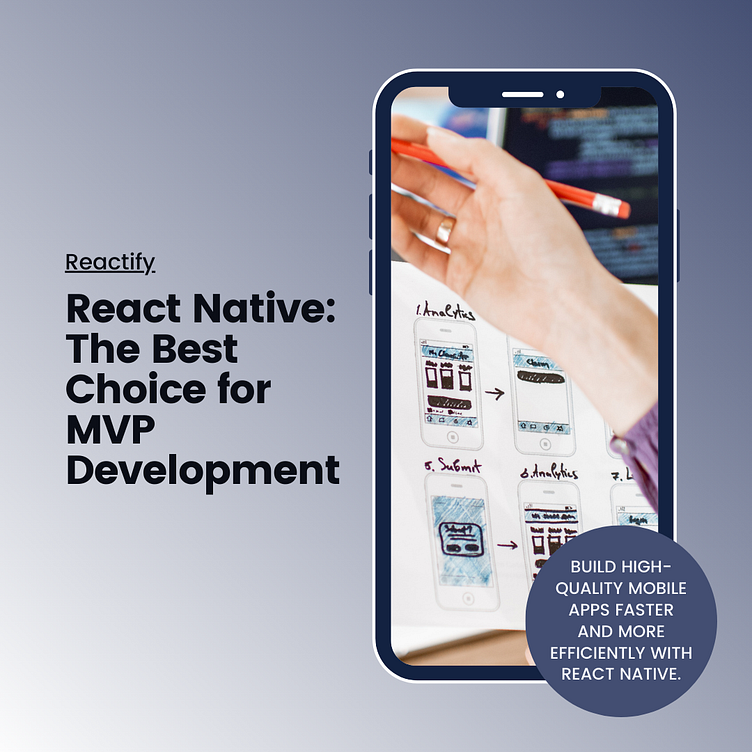React Native for MVPs Development
Rapid Development: React Native enables rapid development by allowing developers to write code once and deploy it on both iOS and Android platforms. This not only saves time but also ensures a consistent user experience across devices. With a single codebase, developers can focus on building features and functionality rather than managing separate codebases for each platform.
Cost-Effective: For startups with limited resources, cost-effectiveness is a critical factor. React Native reduces development costs by eliminating the need for separate development teams for iOS and Android. A unified development process means fewer resources are required, making it an economical choice for MVP development.
Hot Reloading: React Native's hot reloading feature is a game-changer for developers. It allows them to see the results of their code changes in real-time without restarting the app. This significantly speeds up the development process, making it easier to experiment with different features and iterate on the product quickly.
Vast Ecosystem: React Native benefits from a vast ecosystem of pre-built components and libraries. This accelerates development further by providing developers with ready-made solutions for common functionalities. Whether it's navigation, UI elements, or integrations, the React Native community has contributed a wealth of resources that can be leveraged to expedite MVP development.
Community Support: The React Native community is vibrant and active, with developers around the world sharing knowledge, best practices, and solutions to common challenges. This support network is invaluable for startups looking to navigate the complexities of MVP development. Whether you're a seasoned developer or a newcomer, the community is there to provide guidance and assistance.
Scalability: While React Native is an excellent choice for MVPs, it's also scalable for future growth. If your startup gains traction and you need to enhance or expand your app, React Native allows for seamless integration of native modules written in Swift, Objective-C, Java, or Kotlin. This flexibility ensures that your app can evolve alongside your business.
